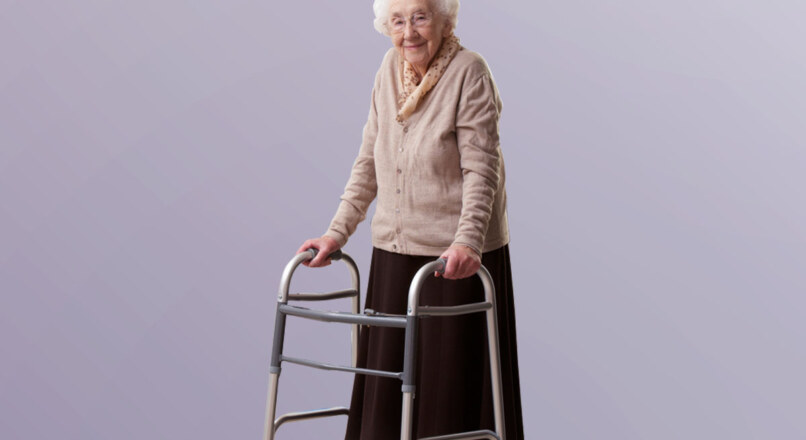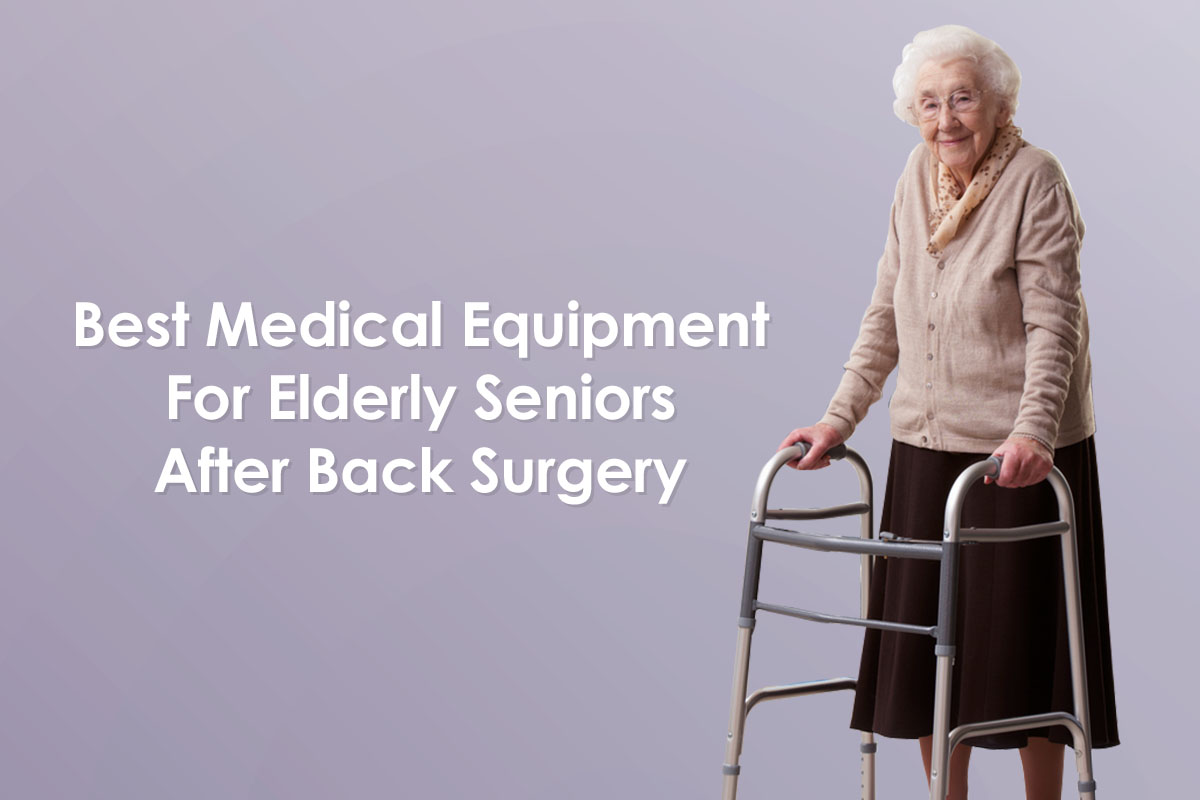
Best Home Medical Equipment to Use After Back Surgery For Elderly Seniors
The number of people over the age of 65 that will have back surgery each year continues to significantly increase. No matter the reason for surgery, the general hope after any procedure is to be able to return to normal daily activities that were previously limited due to spine issues. There are great resources, health professionals and equipment that can help optimize recovery when returning home post-operatively.
Having the Right Equipment Will Help With Recovery.
Chances are surgery will come with a list of precautions from the doctor. Generally they involve no bending or twisting of the spine and no lifting greater than five pounds to prevent re-injury while the back heals. Since spine surgery usually involves nerves (slow healing tissues), these precautions may need to be followed for longer than expected to optimize healing (sometimes up to a year).
At home, this will probably require a change in habits, with specific attention to safely and efficiently completing daily tasks. Although help from a loved one or hired care may be necessary sometimes, some daily activities are completely feasible with the right home equipment. Luckily, home equipment is affordable and may even be covered by insurance with a doctor’s order. Here are your options:
Cane or Walker?
Movement can be therapeutic in recovery as long as it is done in small increments and gradually progressed as healing allows. Gait devices such as a cane, standard walker or wheeled walker can give a boost for being able to better tolerate movement. Which option is best depends on your level of fatigue and balance. A cane is the least restrictive, not as bulky, and allows a free hand; while walkers provide more stability.
Having a rolling walker can also be useful for carrying items for you, such as food or a laundry basket to help maintain weight restrictions. The use of a rolling walker also has the added benefit of a seat so that rest can be taken as needed for walking long distances.
It is common (and fairly normal) to feel off balance or simply exhausted after surgery, requiring a little more support than usual to get around. It is pretty important to be able to get from room to room safely while minimizing pain and the right walking tool can make this a lot easier.
Bathroom Accessories
A bathroom is, of course, a big part of daily activities from toileting and showering to getting ready for the day. Hot water can be therapeutic and relaxing in the recovery process.
However, standing in the shower can be tiring and a safety hazard at first if there is any dizziness. Having something like a shower bench can be helpful and keep showering enjoyable. Additionally, if it’s problematic stepping into the tub or getting up from the toilet. Installing grab bars can be a great option as well. Lastly, simply adding a riser to the toilet or raised toilet seat can make the essential task of getting off and on easier.
Reacher Aids or Grabber Device
It can be tempting to return to normal daily activities and start bending in the back too much. Having an item like a reacher aid device will keep you from being tempted to pick items up off the floor or from other awkward positions (just remember weight restrictions when picking things up).
A reacher can also help with things like dressing (it can be hard to reach those toes!) and even a good back scratch. It may even be helpful to have more than one reacher strategically placed in the house as a reminder to actually use them.
Other Home Options for Back Comfort & Pain Relief
Comfort can be hard to come by initially as well. Having some basic restful amenities at home can help such as ice packs, a heating pad, a TENs unit, and large supportive pillows (for between the legs) can minimize discomfort. Sometimes a back brace can even be prescribed to provide support and give a good reminder for spine precautions.
Get Back Surgery Recovery Equipment on Amazon:
[amazon bestseller=”Back Surgery Recovery Equipment” items=”4″]
Discuss all these options with your surgeon to make sure they are ok with them. With the right tools, recovery at home will be a breeze. Maintaining some form of independence and comfort can help keep spirits high, stress low, and allow continued movement throughout the healing process.


Leave a reply